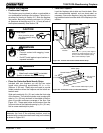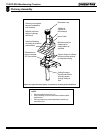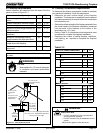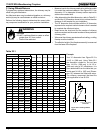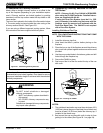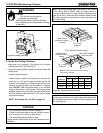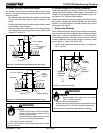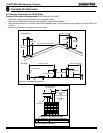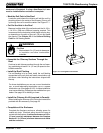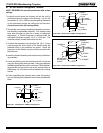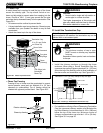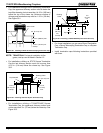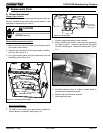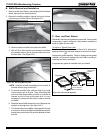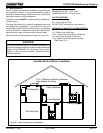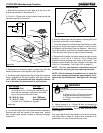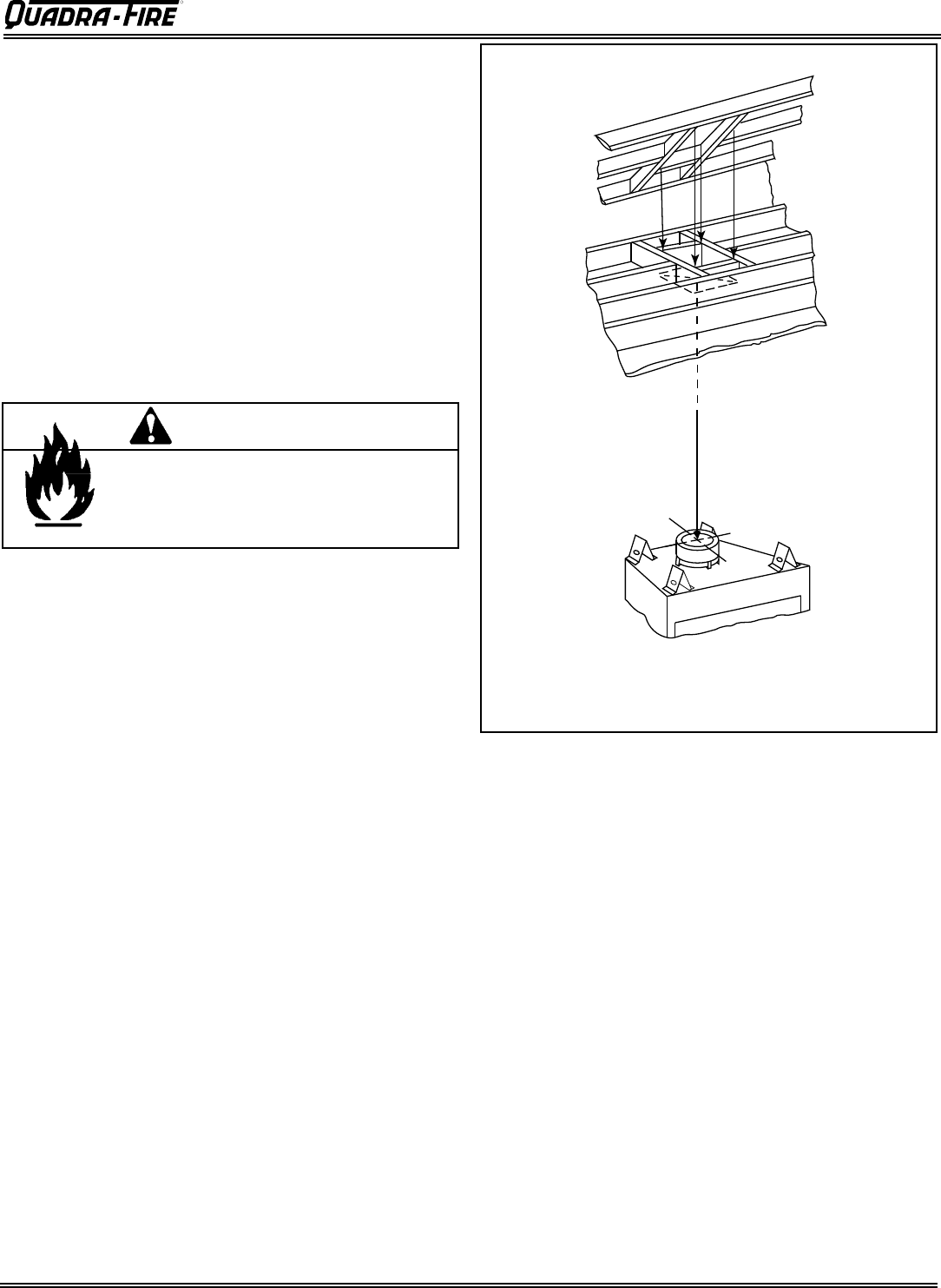
September 1, 2008
433-1390G
Page 27
7100FP EPA Woodburning Fireplace
R
Figure 27.1 Ceiling/Attic Construction
Fire Risk
• Must maintain 2 in. (51 mm) air clearance
to insulation and other combustible
materials.
WARNING
• Mark the Exit Point of the Roof
Locate the point where the chimney will exit the roof by
plumbing down to the center of the chimney. Drive a nail
up through the roof to mark the center. See Figure 27.1.
• Cut Out the Hole in the Roof
Measure to either side of the nail and mark the 14-1/2 in.
x 14-1/2 in. (368 mm x 368 mm) opening required. This
is measured on the horizontal; actual length may be larg-
er depending on the pitch of the roof. Cut out and frame
the opening. See Chapter 25 of the Uniform Building
Code for roof framing details.
• Assemble the Chimney Sections Through the
Roof
Continue to add chimney sections through the roof open-
ing, maintaining at least a 2 in. (51 mm) air space to com-
bustible materials.
• Install the Roof Flashing
If a roof flashing is to be used, install the roof flashing
appropriate to the roof pitch and install a termination cap
and storm collar following the instructions shipped with
the cap.
For chase installations you can use a round termination
cap, a round telescoping termination cap or a square
termination cap (See pages 61-62). A chase installation
must use a chase top. Chase tops are available from your
dealer. See page 14 for building a chase.
• Install the Chimney Air Kit (required in Canada):
When installing the chimney air kit, follow the instructions
provided with this accessory. See page 23.
• Completion of the Enclosure
Complete the fireplace enclosure, allowing space for
outside air ducts. Electrical wiring should not come in
contact with the fireplace. A minimum clearance of 1/2 in.
(13 mm) must be maintained between the fireplace
back and 1 in. (25 mm) minimum clearances to sides
and the enclosure.
NOTE: Wiring for blowers must be done before framed
enclosure is completed. If using a Heat Zone kit, it also
must be installed before enclosure is complete.



